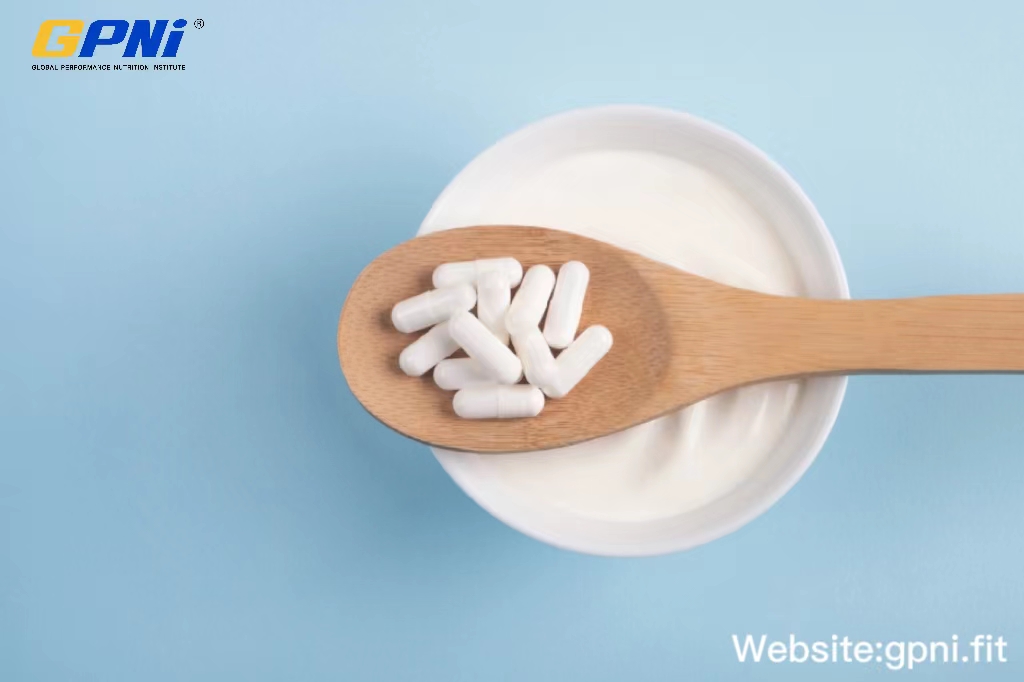Gut microbiome research has steadily gained momentum and is here to stay! The role of the gut extends far beyond digestion. It is amazing to think that your gut is home to trillions of bacteria, archaea, fungi, and viruses. Having such a diverse gut microbiome is linked to better health outcomes such as increased immune function and even decreased risk of cardiovascular events. Given this information, it is no surprise that identifying ways to improve gut health is a growing trend. Probiotics have gained a lot of attention for their effects on the gut. What exactly are probiotics, can they really help our gut health, and do they really impact sports performance?

The word probiotics is derived from the Greek term meaning “for life”. The official definition of probiotics is “live microbial-fed supplements which beneficially affect the host animal by improving microbial balance”. Simply put, probiotics are live microorganisms that are beneficial for you, especially your digestive system. Sometimes probiotics are referred to as live cultures (commonly seen on yogurt labels) or “good” bacteria because of their ability to promote the growth of good bacteria in your gut. Having an imbalance of good and bad bacteria in the gut can cause some unpleasant symptoms that are not limited to gastrointestinal function. Most people are aware that imbalances can cause digestive issues.
Interestingly, gut imbalances are also linked to autoimmune issues, inflammation, and dysbiosis – a persistent imbalance of the gut’s microbial environment. This is where probiotics can help!
There are numerous microbial species or bacteria that meet the definition of probiotics. Some of the most studied ones include Lactococcus and Bifidobacterium. Research has identified numerous benefits of consuming probiotic foods and supplements. The benefits are strain-specific, meaning certain types of bacteria confer specific benefits. For example, subjects supplementing with Lactobacillus Helveticas and Bifidobacteria Longum reported fewer symptoms of anxiety and depression. Regular supplementation with Bifidobacterium Lactis is correlated with improved immune health. Numerous strains are linked to a decreased risk of developing upper respiratory illnesses in physically active individuals. B. Coagulans are thought to lessen the discomfort of delayed-onset muscle soreness. The benefits of probiotics indirectly improve athletic performance. Prolonged intense exercise or rigorous training schedules can make an athlete more susceptible to falling ill and missing practices/performances. Improving immune health and function decreases the likelihood of an athlete becoming sick!

Want to incorporate probiotics into your daily regimen? The multitude of strains and benefits can make this a daunting task. Here are a few tips. First, consuming probiotic-rich foods is an easy way to reap the benefits. Fermented foods are a great source of live bacteria. Yogurt, kimchi, and sauerkraut are a few examples. Not a huge fan of fermented foods? Supplementation with probiotics can help. Here are a few things to keep in mind when looking for probiotic supplements. Most supplements should list the colony-forming units (CFU) or number of live microorganisms. Research has found that the number of CFUs can influence the effectiveness of probiotics. Make sure to check for the dosage associated with the specific bacteria of your supplement. The National Institutes of Health is a terrific resource for information on probiotics. Probiotics are live microorganisms, therefore the date they were packaged and how they are stored is important. Fortunately, advances in science have led to some supplements that do not require refrigeration. Take probiotic supplements 30 minutes prior to a meal to ensure the healthy bacteria makes it to your gut! Daily supplementation is recommended. Remember the best probiotic practices include a combination of supplementation and eating a well-balanced meal.

Cassie Evans is a registered dietitian and a published researcher. She has studied sports nutrition and completed an internship with the University of Miami Sports Nutrition Team and Nova Southeastern University’s sports performance team. She holds a Bachelor of Science in Exercise and Sports Science and received her CISSN in 2018. She is currently pursuing her doctorate in Human and Sports Performance from the Rocky Mountain University of Health Professions.
References
Jäger R, Mohr AE, Carpenter KC, et al. International Society of Sports Nutrition Position Stand: Probiotics. J Int Soc Sports Nutr. 2019;16(1):62. Published 2019 Dec 21. doi:10.1186/s12970-019-0329-0
Parkar SG, Gopal PK. Gut Microbiota and Metabolism in Different Stages of Life and Health. Microorganisms. 2022;10(2):474. Published 2022 Feb 21. doi:10.3390/microorganisms10020474
Kechagia M, Basoulis D, Konstantopoulou S, et al. Health benefits of probiotics: a review. ISRN Nutr. 2013;2013:481651. Published 2013 Jan 2. doi:10.5402/2013/481651
Belizário JE, Faintuch J. Microbiome and Gut Dysbiosis. Exp Suppl. 2018;109:459-476. doi:10.1007/978-3-319-74932-7_13
Bubnov RV, Babenko LP, Lazarenko LM, Mokrozub VV, Spivak MY. Specific properties of probiotic strains: relevance and benefits for the host. EPMA J. 2018;9(2):205-223. Published 2018 Apr 13. doi:10.1007/s13167-018-0132-z







